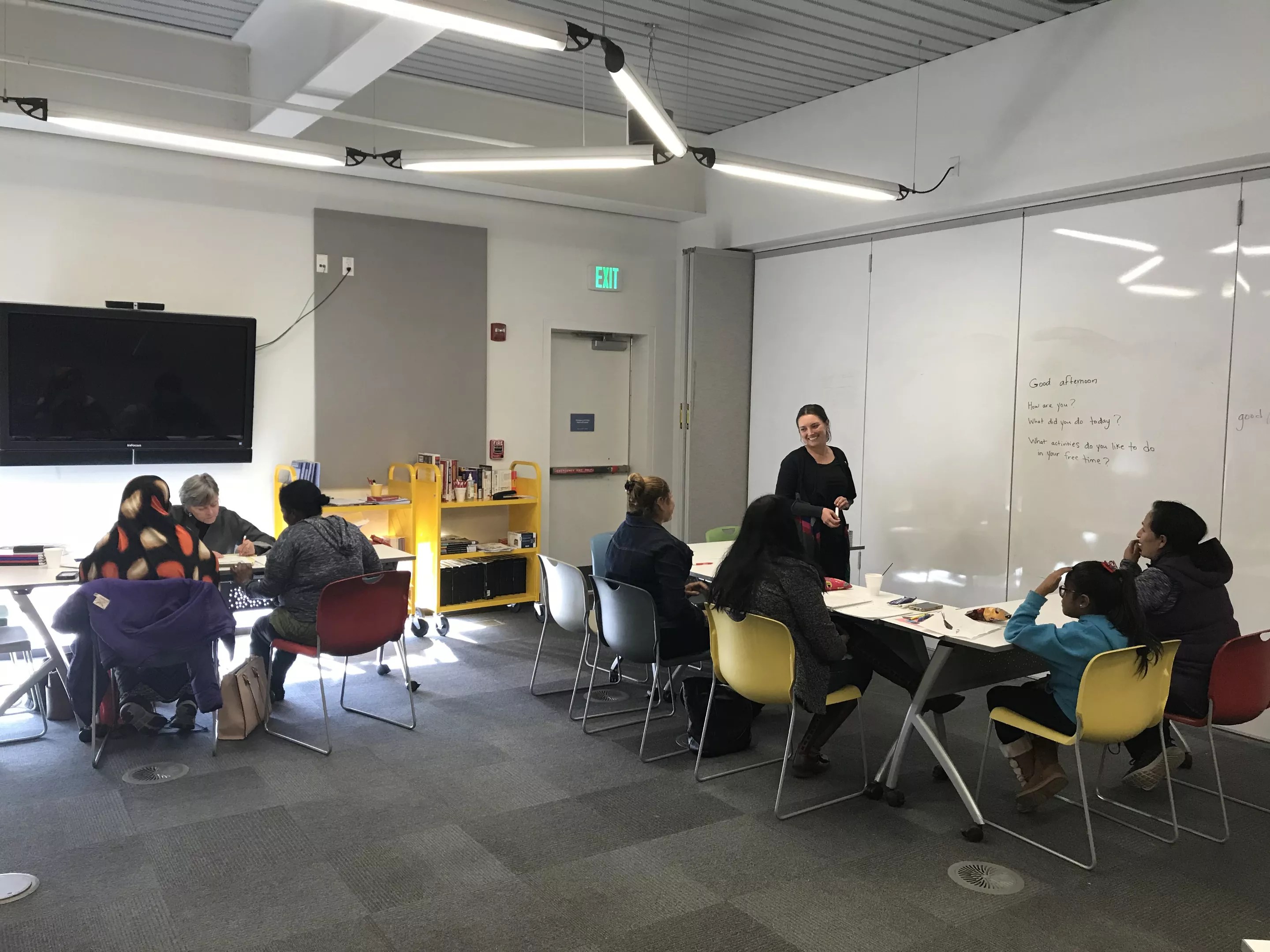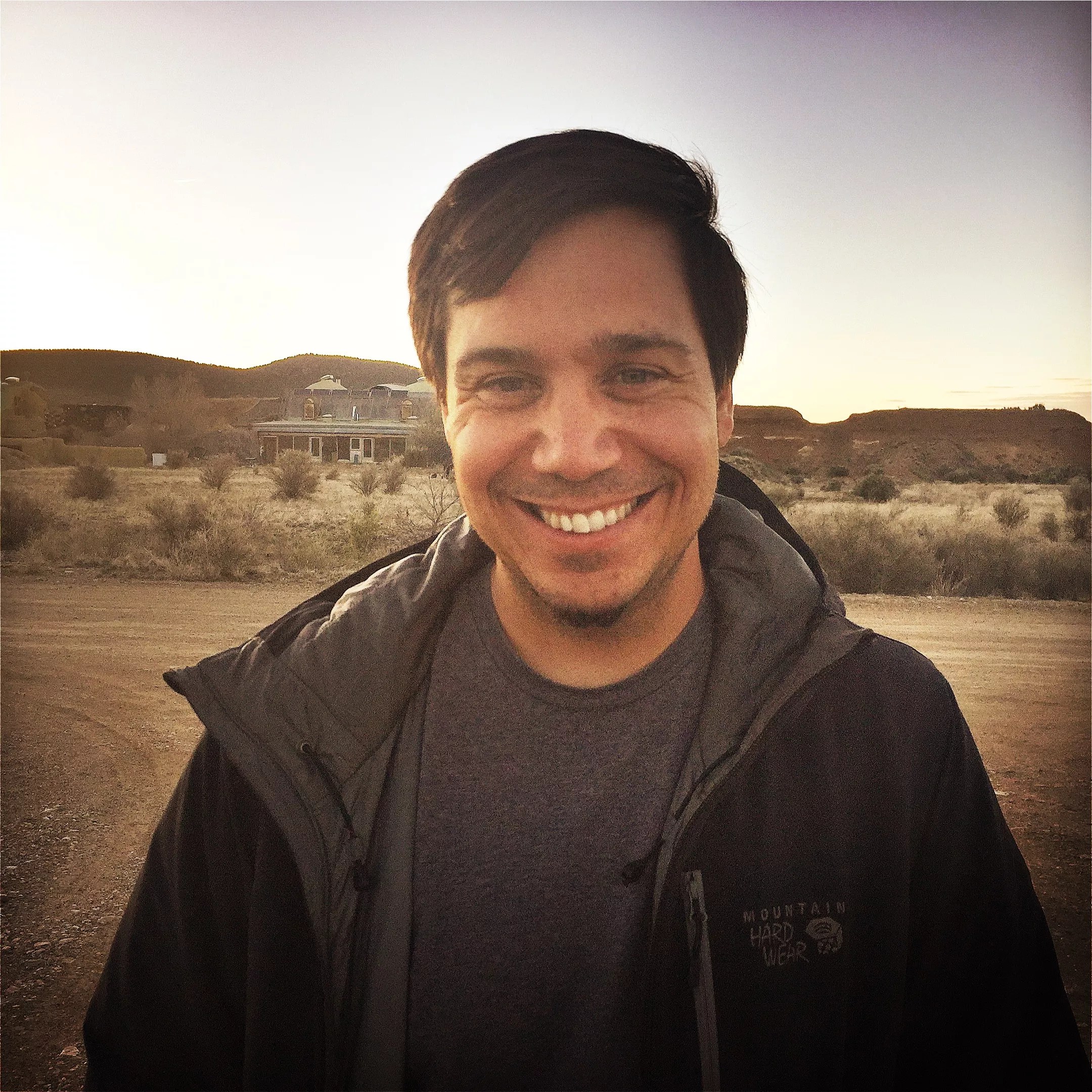
Courtesy of Nicanor Diaz

Audio By Carbonatix
Nicanor Diaz knows how confusing and hard it can be for an immigrant to assimilate in a new country. When his father was accepted at an American university, he moved Diaz and the rest of his family to the United States from Argentina. Diaz regularly served as his mother’s interpreter.
The family frequented their local library; his mother had been a librarian in Argentina, so it connected them to their roots and to information about their new home. When Diaz was accepted to the University of Colorado Boulder, he even got a scholarship through the Denver Public Library.
Diaz now serves as the DPL’s Immigrant Services Manager. He manages the Ross-Barnum, Rodolfo Gonzales, Smiley and Woodbury branches, and oversees the library’s Plaza program. Inspired by cities in Latin America, many of which are built around “plazas” that are home to government buildings and the biggest church in town, the ten-year-old Plaza program is a way for Denver’s immigrant, refugee and asylum populations to access each other as well as resources they need to navigate the city.
Funded by a grant from the Denver Foundation, the program is offered at ten branches, including Athmar Park, Ross-Barnum and Rodolfo Gonzales, in neighborhoods with large immigrant populations. It serves about 1,700 people a month.
“Showing up in a city where you don’t speak the language and you don’t know the culture, it becomes very important to have a communal gathering place where you can go and find other people who are like you, having the same issues or [encountering the same] barriers,” Diaz says. “Being able to find somebody that understands you in your native language and has gone through this and can give you guidance.”

Nicanor Diaz is the Denver Public Library’s Immigrant Services Manager.
Courtesy of Nicanor Diaz
The Hampden branch’s Plaza program in southeast Denver is the most popular and diverse. Twenty to 25 children attend the two-hour program every week with their parents, who are mostly from eastern African countries, for help with their homework. Library staff and volunteers will aid the children while their parents are nearby, conversing with each other or getting tips on job hunting, working on their résumés or practicing for their citizenship test.
“It is a truly multicultural program that brings a lot of people together,” Diaz says. “The real beauty about it is people come to the Plaza and they get to meet each other and build community organically just from coming to the library.”
The library also offers citizenship classes and free legal advice to immigrants and refugees through its Services to Immigrants and Refugees program. The most popular STIR citizenship class is at the Barnum branch; a half-dozen people regularly attend, practicing the interview process for becoming a naturalized citizen. While they offer advice, staffers also dispel any myths about the process. For example, the cost to just access the form to become a naturalized citizen is about $700. Diaz says the library helps connect anyone interested in filling out the form with local nonprofits that give low- or zero-interest loans to cover that fee. The U.S. government even waives the fee for certain immigrants who qualify, based on their income. Attorneys are also available at some branches, offering ten or fifteen minutes of legal advice per visitor.
“Libraries are for everybody, and for immigrants and refugees who live in the community, the library is also for them,” Diaz says. “We want to make sure we have staff that look like our immigrant community. We want to make sure we have materials for them – like books and movies – that they can relate to, so they walk into the library and feel like it belongs to them.”